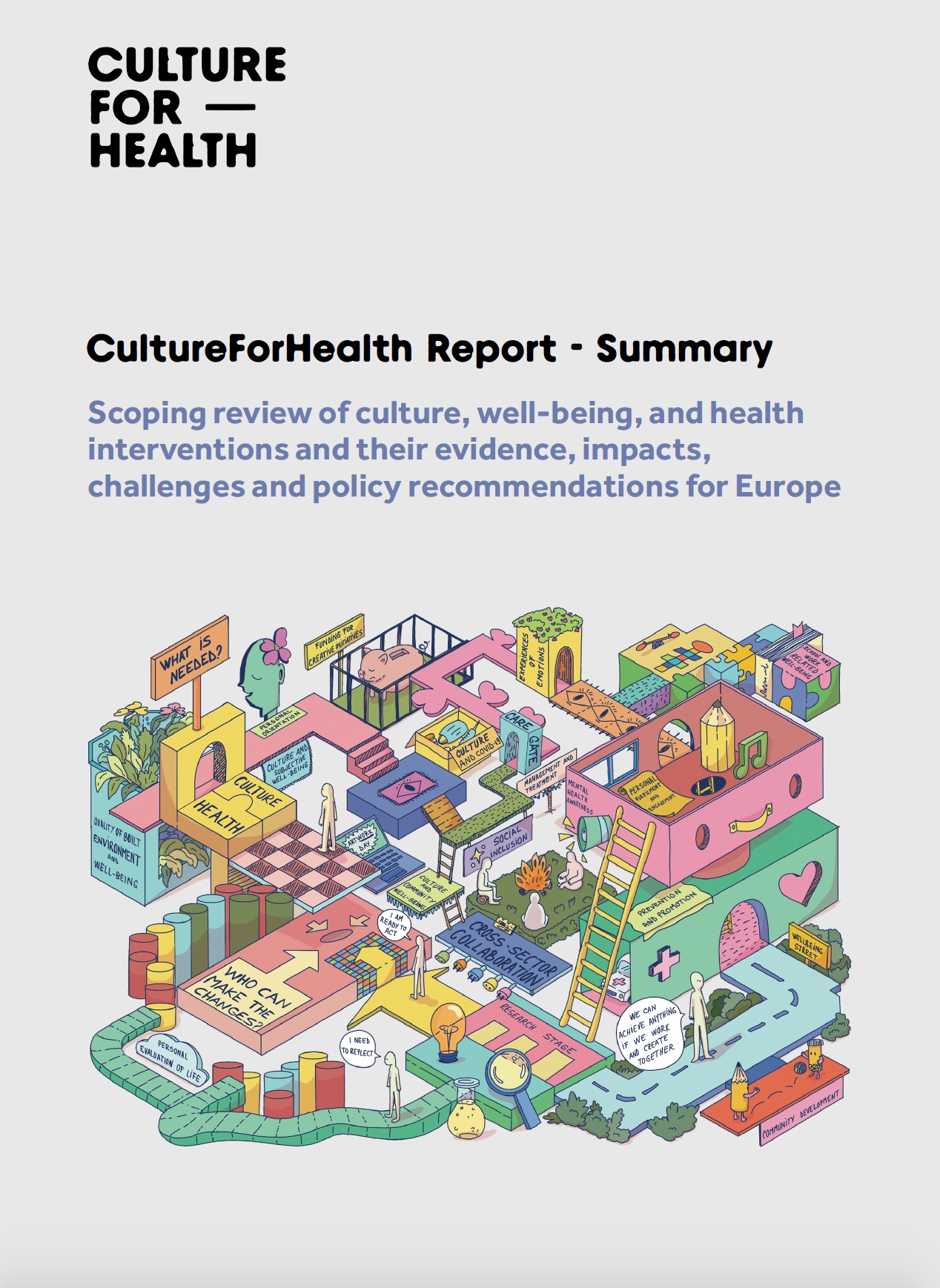The CultureForHealth project is proud to present the
“Scoping review of culture, well-being, and health interventions and their evidence, impacts, challenges and policy recommendations for Europe.”
The aim of this scoping review is to synthesise existing evidence on the positive effect of arts and cultural activities on health and well-being. This means the review is not limited to a few research questions but seeks to provide a clear indication of the volume of existing literature, the key concepts, focus points and the types of studies that exist. It also identifies
knowledge gaps in the existing literature. Finally, it gathers policy recommendations and identifies challenges, further expanding the scope of the report beyond the proposed policy directions and specific policy measures.
As our society faces severe challenges such as a mental health crisis exacerbated by the pandemic, an ageing population, growing inequalities, forceful displacement of people due to war and political conflict, and dynamic changes to work and the economy, new solutions and approaches are needed.
The findings of this scoping review and its recommendations throw light on the pathways through which culture and the arts can support individuals and communities in adequately addressing these global challenges, thus identifying further avenues for future research and action.
The context: challenges for the EU for which new solutions are needed
Good health and well-being are a fundamental pillar of prosperous societies. However, health policy across the EU tends to focus on disease treatment.
A more ambitious and holistic approach to health and well-being that complements the biomedical model is thus required – shifting the focus towards health promotion and disease prevention. As the scoping review suggests, if such a long-term approach is combined with efforts to address existing health inequalities, the result is likely to foster individual health, subjective well-being, and community well-being. Altogether, this could promote an economy of well-being as described by the OECD [2]. Despite these aspirations, reality is different. To mention one example, mental health problems affected more than 85 million EU citizens already before the outbreak of COVID-19 [3]. Since then, anxiety and depression have significantly increased, and current factors such as the energy crisis and the war in Ukraine could exacerbate these conditions further. In addition to this, many European countries have serious capacity constraints in their psychosocial support systems, often with long waiting lists. The European Commission is calling for a comprehensive approach to mental health, and it is of the utmost importance that it recognises and frees up the potential of culture to improve health and well-being. This is not to suggest that culture is a panacea for social ills; rather, culture can be embedded into broad approaches to address them. In fact, culture could help to effectively tackle the following challenges:
- 1. The need for an increased focus on health promotion and disease prevention
- . A growing mental health crisis
- . The need to support the broader health and well-being of young people
- . Ongoing changes to the labour markets, patterns of work and the economy
- . An ageing population
- . The association between ill health and patterns of inequality
- . The need to promote active citizenship
- . The mental health challenges faced by forcibly displaced people
Presented today at the EU Commission's seminar, “Culture: a driver for health and wellbeing in the EU,” the CultureForHealth Report adds to the growing awareness in the European Union (EU) of the critical role of culture and the arts in improving health and well-being at both the individual and collective level.
Download a copy to read
here
Find more information
here 







